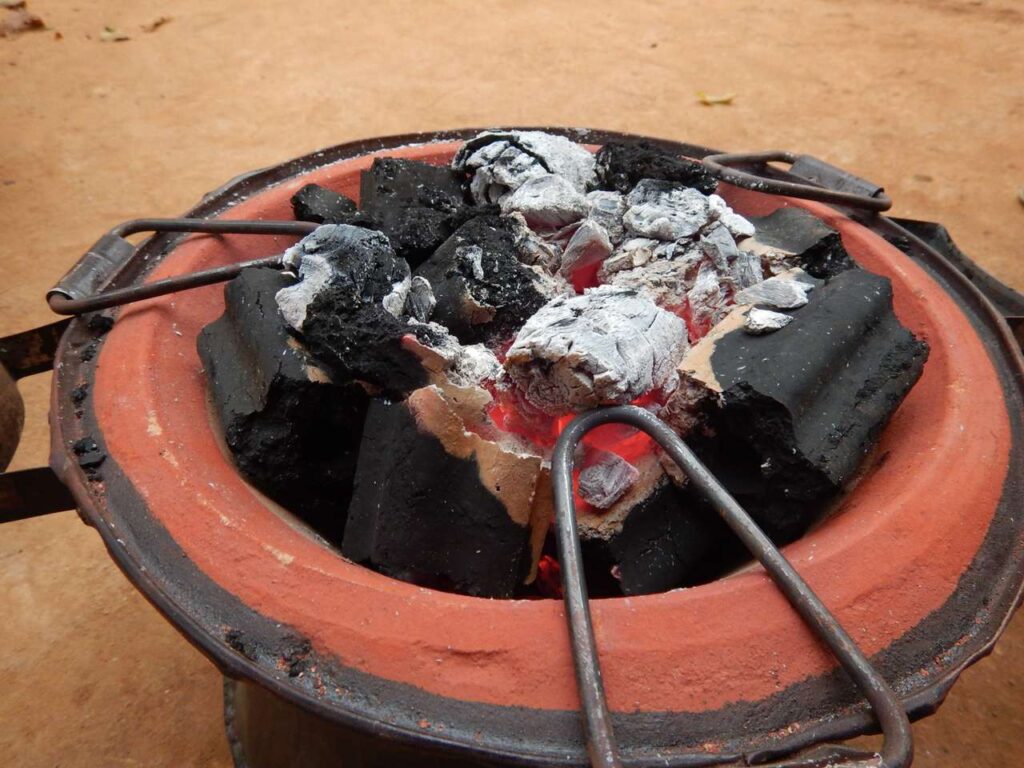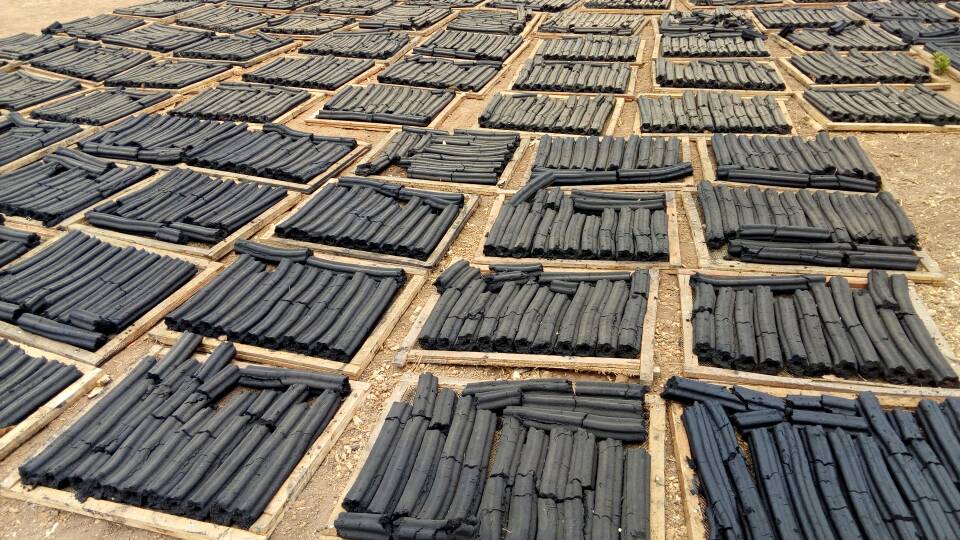BRIQUETTES FROM CHAR DUST
Briquettes made from waste biomass would solve an extremely urgent problem: probably more than 90% of all meals in Tanzania are cooked on charcoal fires. Due to the rapidly growing population, especially in the cities, this cooking method leads to huge pressure on the forests, which are actually under protection.

Mkaa Tunza Mazingira (MTM) is a small start-up company, run by a group of young people in Magunguli village. MTM means “charcoal that cares for the environment” in Swahili. They process char dust into briquettes. For this purpose, they use biomass that explicitly does not come from trees felled for this purpose. Everyone in the village can produce charcoal dust with simple means, under the supervision of the village fire police. The marketing company TBM pays producers a deposit for each delivery and markets the packed briquettes in town. If the sale works out, the producers of the pulverised coal receive a bonus after the final settlement of the TSS service: MTM thus generates a regular income, and TBM earns a TSS marketing commission.
BACKGROUND
2019-10-27. In the southern highlands of Tanzania, there are Pinus and Eucalyptus forests – both in large industrial plantations and from many farmers who plant trees on small plots of their own. Every farmer family now grows pine and eucalyptus. This grants them good money after 12-20 years.
Logging produces a lot of wood waste that just lies around and sometimes becomes a fire hazard. The fires can also spread to the natural forest, which is itself under strong pressure from charcoal production.
In 2015, various people from the region began to ask themselves how all the wood waste could be used. After several attempts, an idea crystallised: to char this biomass into charcoal dust and then turn the dust into briquettes for cooking.
This idea also reached the Emmental Forest Cooperation EFCO via farip, who turned the idea into a project supported by the Swiss Confederation within the framework of a REPIC project.
Local Tanzanian SMEs partnered with EFCO and farip to implement the project. Together we worked with local people to re-explore the ancient and very simple method of pit charring. In this process, biomass of any kind can be charred into dust and grit: Branches, cuttings and leaves from logging, crop residues, field weeds, savannah grasses, etc.
With the help of experts from the Swiss Emmental, the REPIC project was able to get the first functioning briquetting-press up and running in Magunguli. The project resulted in a functioning technique for processing biomass locally into briquettes that burn in cooking stoves.

At the end of the project, almost 100 tonnes of charcoal dust were stored. Several trained people had mastered the briquetting craft. But the marketing of the briquettes was still missing. The marketing company TBM has now taken this under it‘s wings. They try to market the briquettes on behalf of the charcoal producers, using the TSS accounting method.
The approach has attracted attention up to the highest levels in Tanzania. Briquettes made from waste biomass would solve an extremely urgent problem: probably more than 90% of all meals in Tanzania are cooked on charcoal fires. Due to the rapidly growing population, especially in the cities, this cooking method leads to huge pressure on the forests, which are actually under protection. However, the protection cannot be enforced. If it would be possible to introduce a fuel for cookers that no longer requires hardwood trees, the greatest pressure on natural forests could be reduced. In addition, charcoal burning is an important source of income for most rural dwellers, even though it is forbidden to charcoal burn. This briquetting technology gives them a legal alternative. Urban dwellers finally get a legal fuel as well. The process has huge potential and could be a breakthrough for the country.
